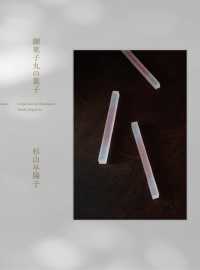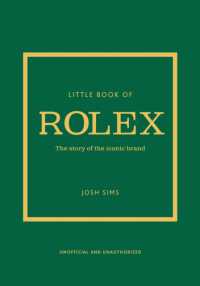- ホーム
- > 洋書
- > 英文書
- > Cinema / Film
Full Description
The author invites readers to spend time in the pleasure of Harpo's cinematic company while comparing him to tricksters from folklore, myth and legend. The book demonstrates how Harpo, the sweetest, wildest, most magical Marx brother, accomplishes the archetypal trickster's work. Thirteen chapters examine Harpo's trickster persona closely in each of the Marx Brothers' films: The Cocoanuts, Animal Crackers, Monkey Business, Horse Feathers, Duck Soup, A Night at the Opera, A Day at the Races, Room Service, At the Circus, Go West, The Big Store, A Night in Casablanca and Love Happy.
Harpo as trickster embodies luck, foolishness, cleverness, mania, hunger, lust, stealing, shape-shifting, gender-bending, alliance with underdogs, attacks on the powerful, musicality, sympathy for animals, magic and mischief. His trickster behaviors in all the films are woven into a composite impression that "with a little luck, will resonate beyond the covers of this book and leak out into the world, making it a more just, flexible, resilient, amusing and magical place."
Contents
Table of Contents
Preface 1
Introduction 5
1. The Cocoanuts (1929): Trickster Appears 19
2. Animal Crackers (1930): The Professor Professes 30
3. Monkey Business (1931): Not Quite Chevalier 39
4. Horse Feathers (1932): Dogging Football 50
5. Duck Soup (1933): Taking a Scissors to War 60
6. A Night at the Opera (1935): Cleaning with Dirt 74
7. A Day at the Races (1937): It's Gabriel 87
8. Room Service (1938): Gimme Shelter, Food and Art 100
9. At the Circus (1939): Swingali's Sneeze 109
10. Go West (1940): Feeding the Train the Train
11. The Big Store (1941): Mercantile Mayhem 135
12. A Night in Casablanca (1946): Meta Marx 148
13. Love Happy (1949): Trickster's Capstone or Hail and Farewell 159
Conclusion: A Retrospective Montage 173
Notes 211
Bibliography 216
Index 219







